Hacking the perfect melody
Project Music brought together students from all backgrounds across the university to originate musically-inspired creations for the first Music Makeathon.
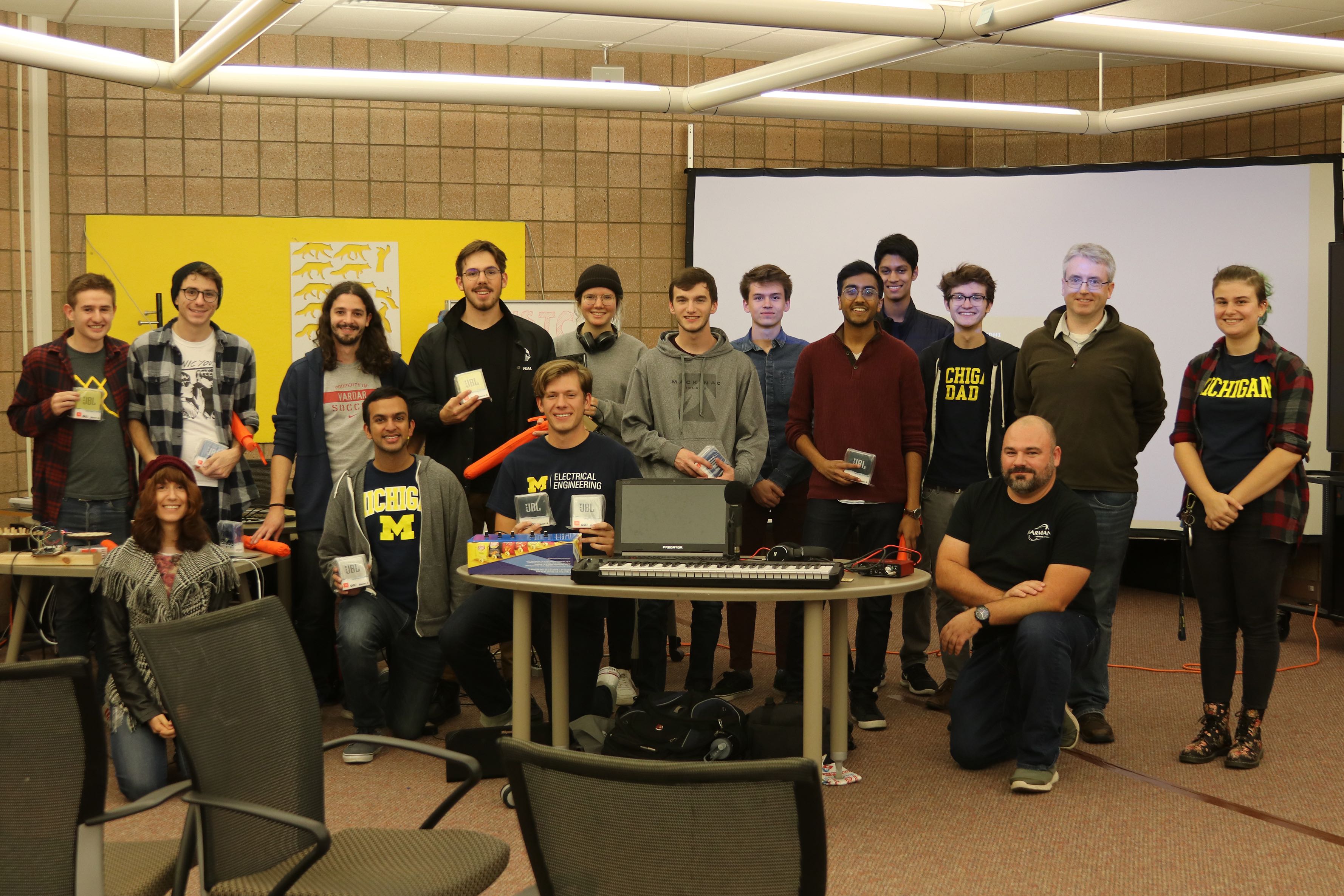
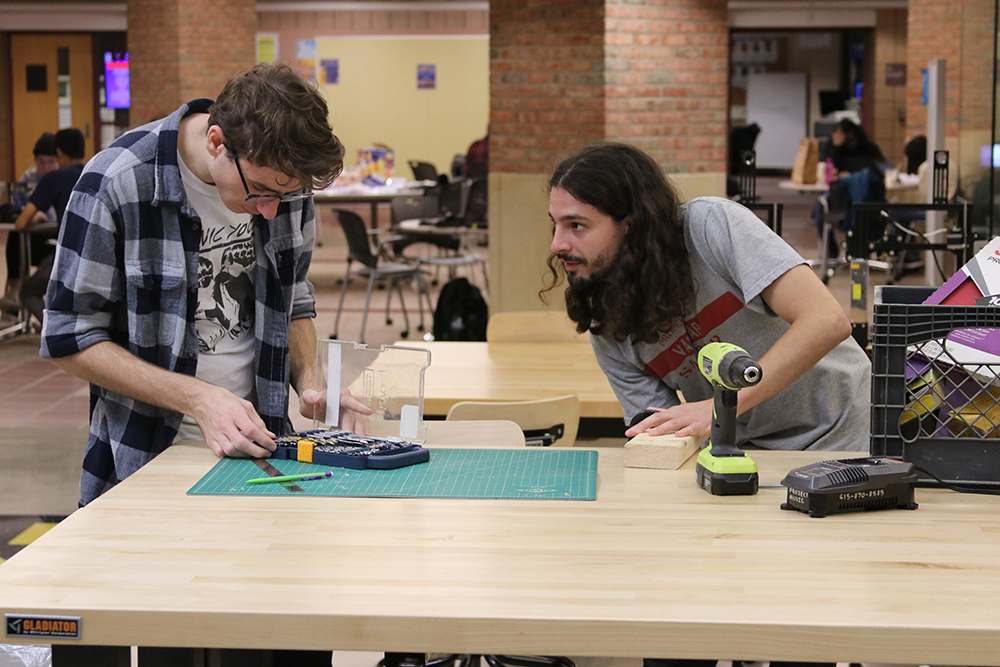
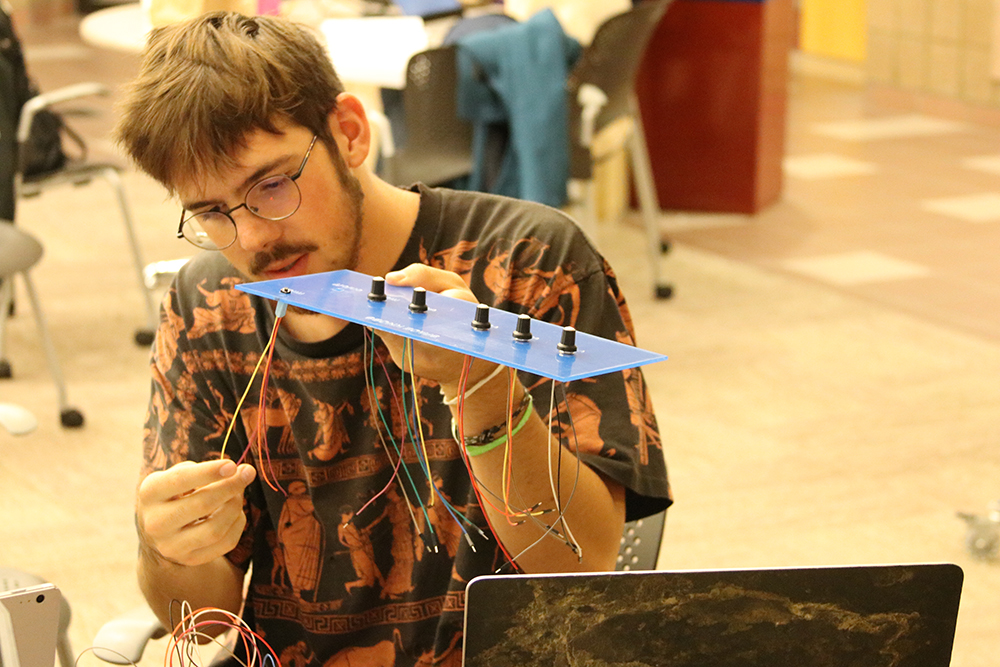
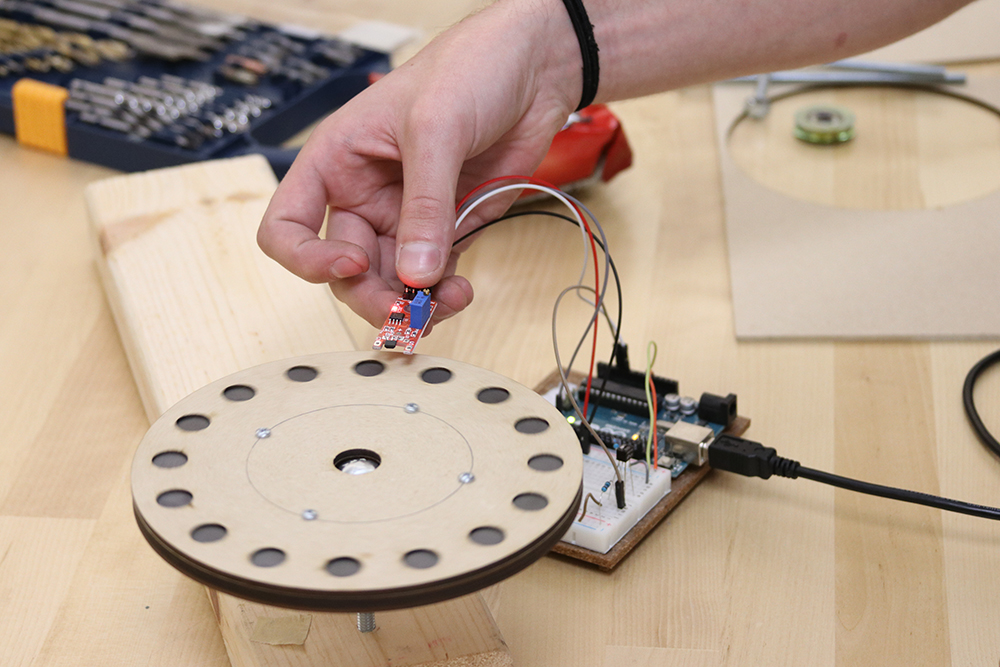
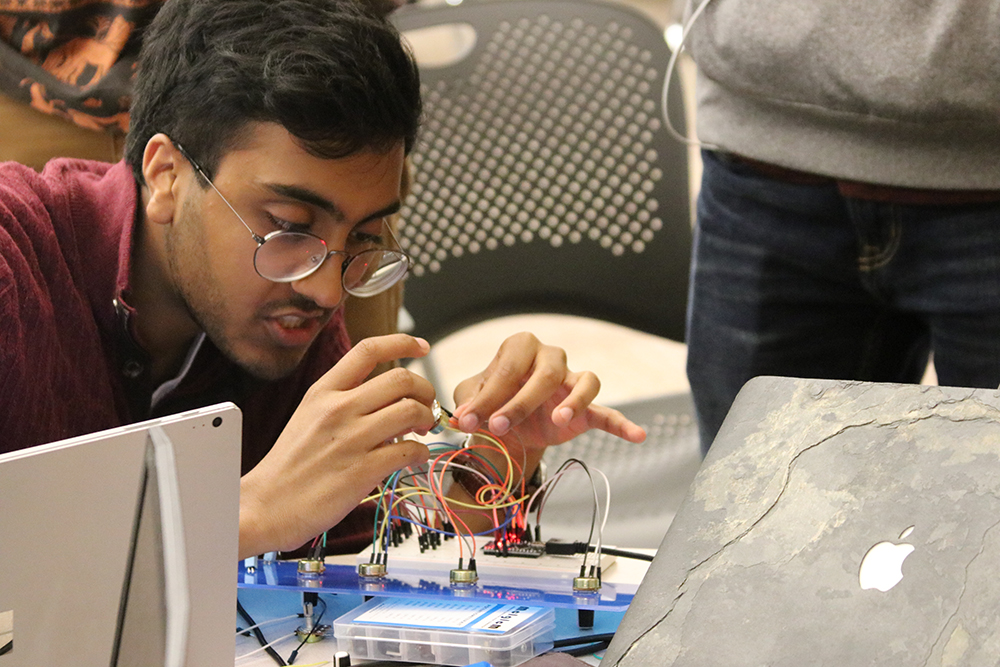
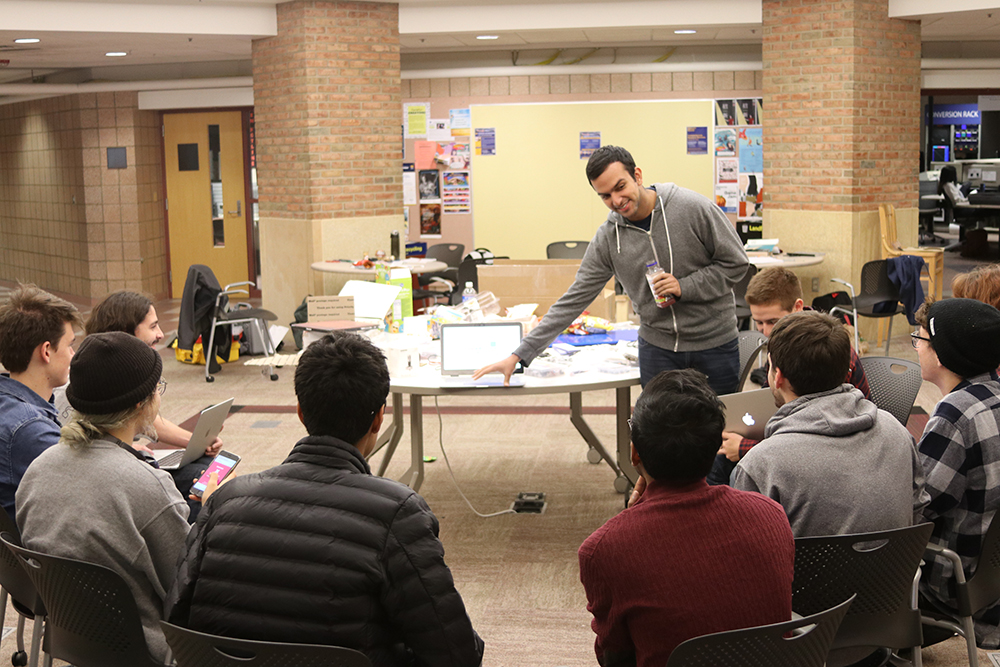
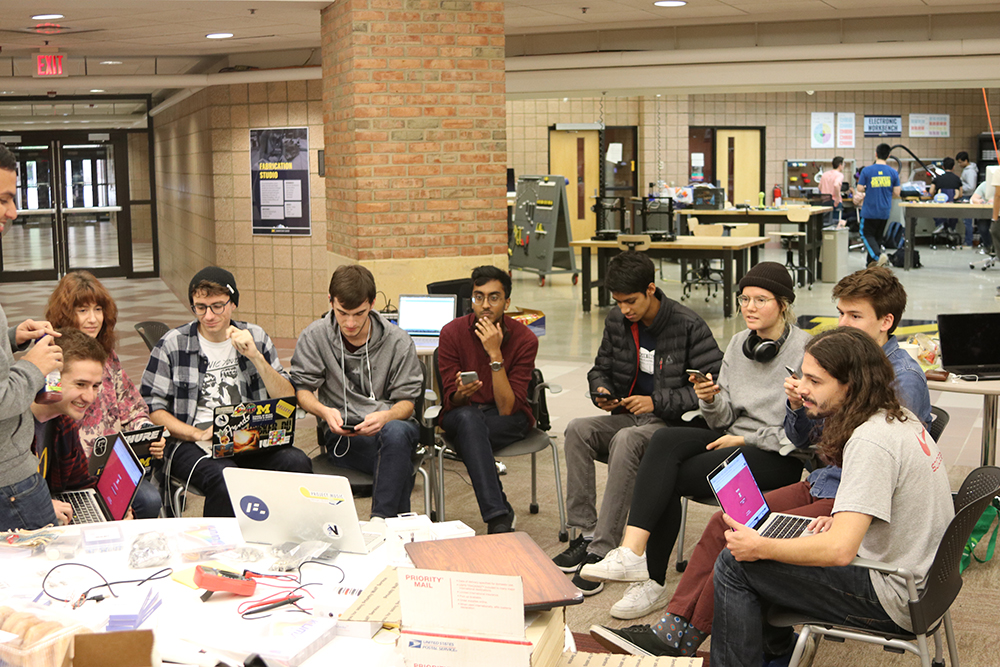
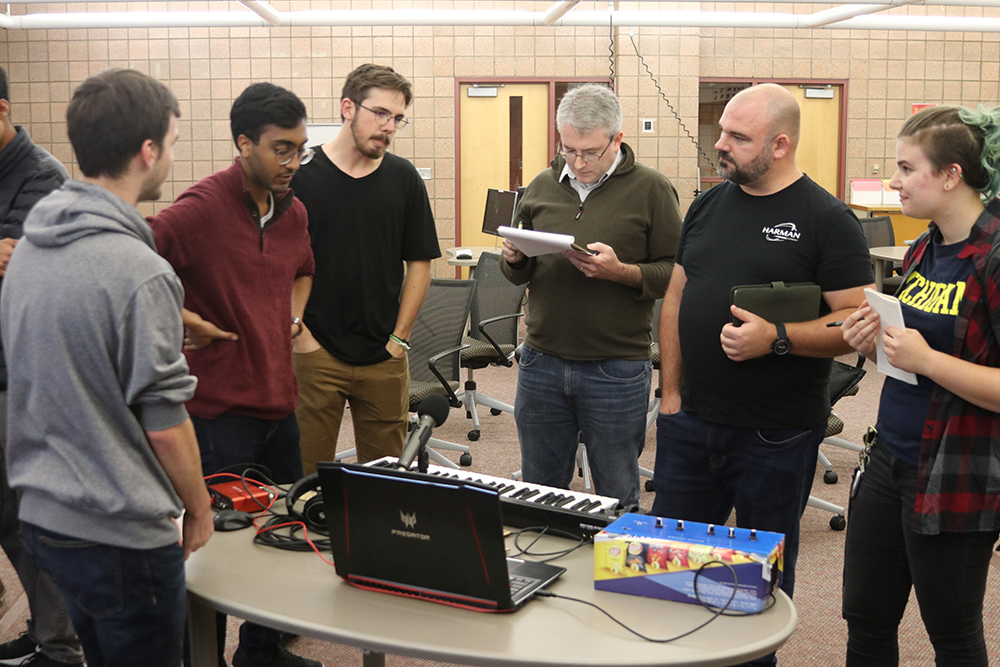
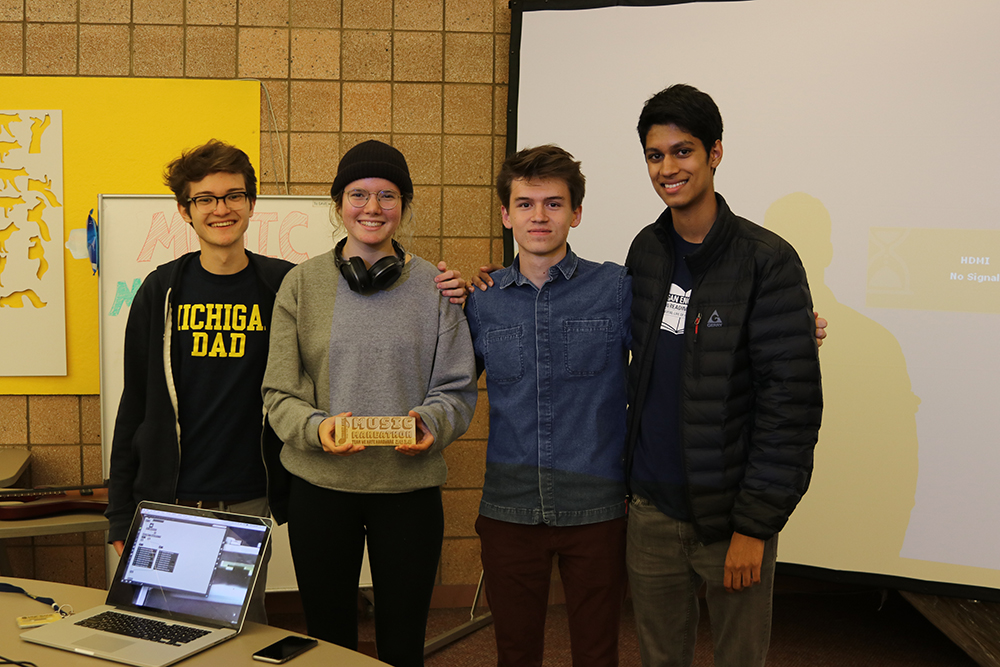
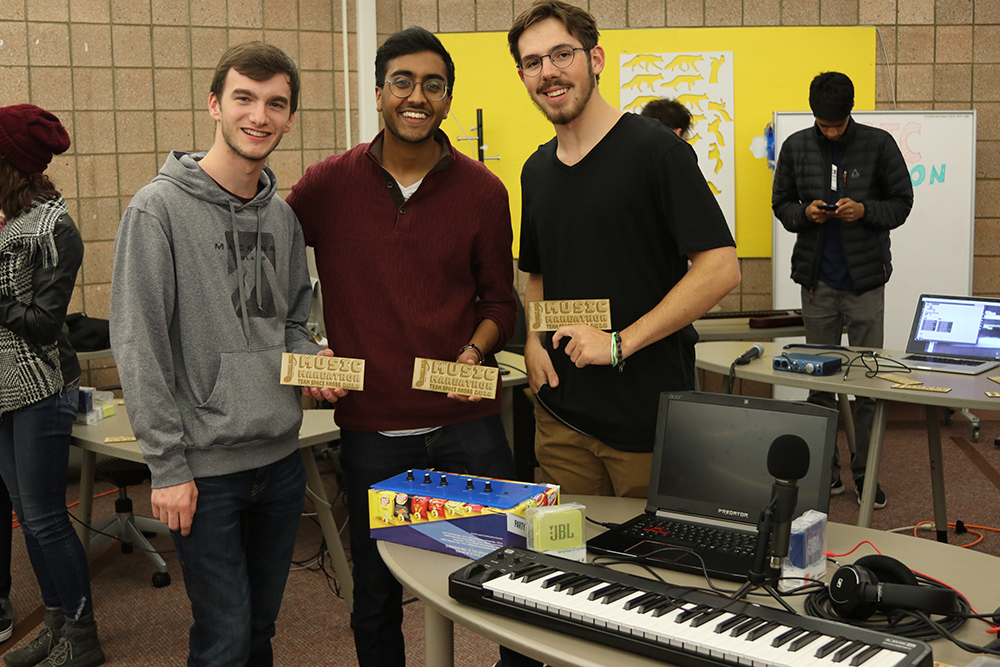
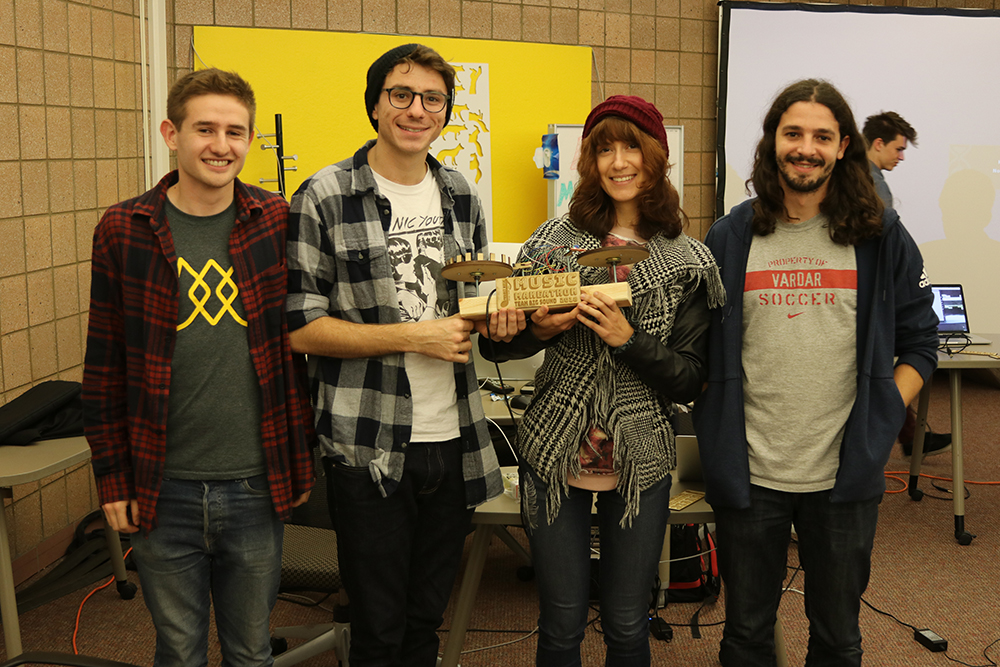
It was 18 hours of creativity, collaboration, and invention. Music Makeathon – put on by the student organization, Project Music – challenged students to design their own music-related project. Students were free to create whatever they wanted, from a new instrument to a guitar pedal to an analog noise maker to a software plug-in and more.
The twelve participating students came from many departments across the university including Electrical and Computer Engineering, Material Science and Engineering, and the Ross School of Business, with the majority coming from the School of Music, Theatre, and Dance. The participants were split into three teams of four, and most met their teammates for the first time at the event.
“It was a really cool experience to see people in different majors and from different backgrounds collaborate without knowing each other,” said Kiran Thawardas, a senior in computer engineering and co-president of Project Music.
The teams competed for a variety of prizes offered by Harman, Shure, and Sweetwater, and the first place team won Goodhertz plugins. The judges were professionals in the audio industry from Harman and Mitsubishi, which gave the students a taste of the kinds of projects that might succeed in the professional world.
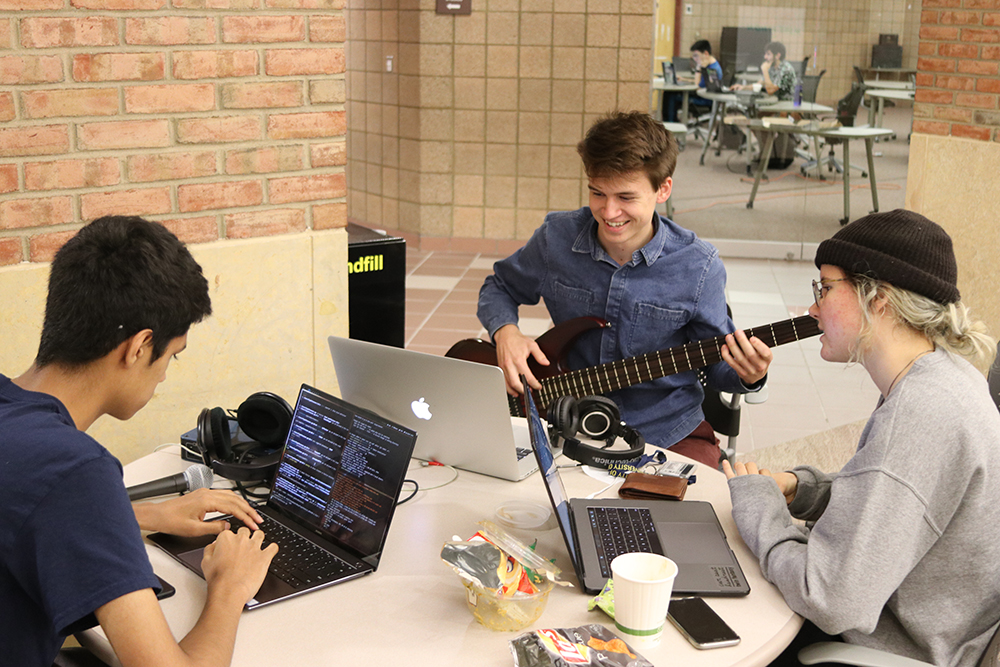
 Enlarge
Enlarge
“It’s a really good thing for students who may be looking to get into the audio industry post-graduation to have feedback from people who are actually in it,” said Sophia Mehdizadeh, an Audio Engineer in Advanced Development at Mitsubishi and former Project Music member who helped judge the event.
Team We Hate Hardware took first place with their project, a bass guitar triggered sampler. A sampler is an electronic or digital musical instrument that uses sound recordings of real instruments, excerpts from recorded songs, or other sounds to compose or perform music. The team created a sampler that would match whatever sound was input. It analyzed the input sound – they demonstrated using a bass guitar – to find all the samples within a song, and then it would play the sample that most resembled what the instrument played.
Team Space Knobs built a vocal harmonizer that would harmonize with any sound input. If you sang into it, it would sound like there were multiple people singing a cappella.
Team Big Sound designed an instrument based on a turntable. It was a spinning disk that had magnets, which allowed it to play percussively over a sensor and different distances, which would change the note of the instrument. The faster you spun the disk, the faster and higher pitched the resulting sound would be.
“It was amazing what they were able to pull together in such a short amount of time,” said David Trumpy, a Senior Principal Software Engineer at Harman who helped judge the event.
Shawn O’Grady, the Digital Fabrication Specialist and Adjunct Lecturer in the Center for Entrepreneurship, hosted the event in his lab. The Makeathon lasted for six hours the first day, October 6th, and twelve hours the second day, October 7th.
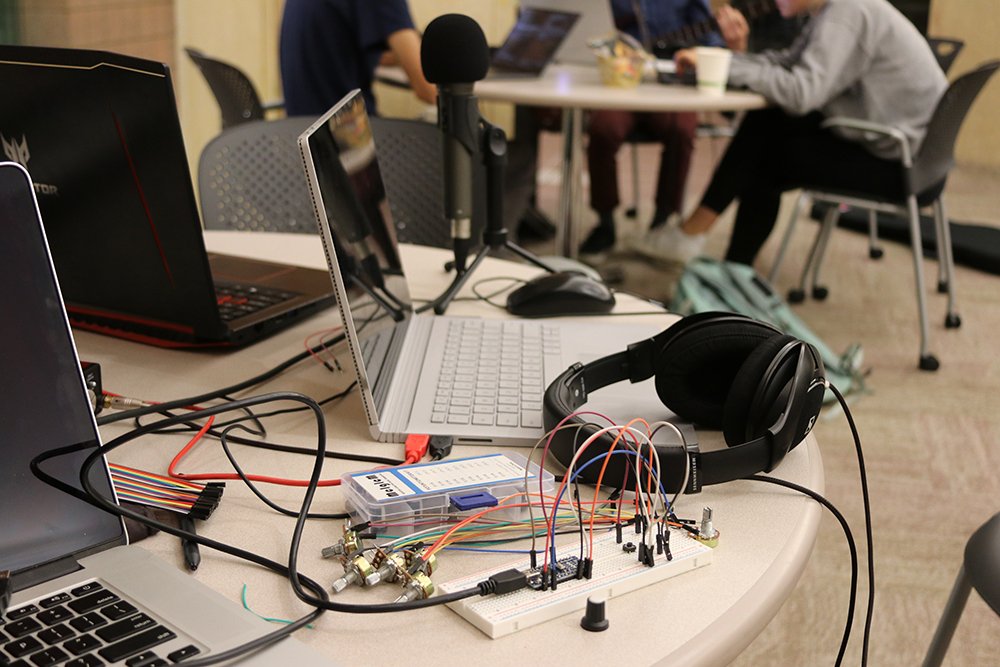
 Enlarge
Enlarge
“The people in charge of the fabrication lab suggested that we give the participants a break to sleep, so we don’t have sleep-deprived people working with tools and laser cutters and machines,” said Adam Schmidt, a sophomore in electrical engineering and sound engineering and co-president of Project Music. “That’s reasonable.”
Music Makeathon was inspired by similar hackathons held throughout the country. However, this was the first Music Makeathon to be held at U-M.
“The main purpose of a hackathon is learning and collaboration, so a lot of people were able to learn software that they had never used before, like MAXMSP,” Thawardas said. “Also, people who had never really dealt with hardware were able to work in the design lab with 3D printing and laser cutting. A lot of people only learn theory in class, but this is a good way for them to apply that knowledge.”
A lot of people only learn theory in class, but this is a good way for them to apply that knowledge.
Kiran Thawardas (CE), co-president of Project Music
Project Music is hoping to make this an annual event. It is open to all students of all different backgrounds. Project Music hosts workshops to train participating students in the use of needed equipment, such as CAD, 3D Printing, and Arduino. Students may apply as an individual or with only a partial team, and they will be matched with other participates based on skill level and expertise.
“We were just really happy to be able to make this happen,” Thawardas said. “We feel like everyone was pretty excited to be there, and we hope to expand it with more sponsors, more teams, and maybe even additional schools from outside the University of Michigan at some point.”
Project Music’s goal is to revolutionize the music industry and music creation, and they’re dedicated to building and testing experimental instruments. They provide opportunities for students to integrate multiple and diverse skills, such as design, manufacturing, music, engineering, and more. They provide a space for students to make music and meet other musicians with similar interests.
“There’s a lot to say about the crossover between technology and the arts,” Mehdizadeh said. “When you do something interdisciplinary like Music Makeathon where you get a lot of different perspectives, really great things come out of projects.”
To learn more about Project Music and stay up-date-to on their future Music Makeathons, visit their website.
 MENU
MENU 
